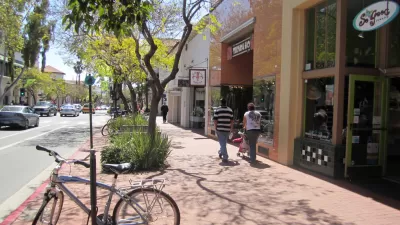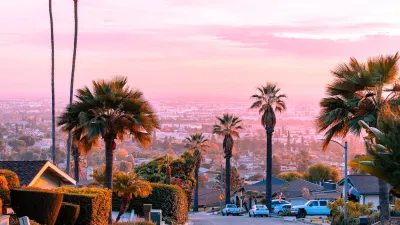The "great global project" of this century, says Patrick Doherty, is how to "accommodate 3 billion additional middle-class aspirants in two short decades." In a bold essay, he outlines how the U.S. must lead the global transition to sustainability.

The United States is in need of a new "grand strategy," says Doherty, director of the Smart Strategy Initiative at the New America Foundation. "The great global project is no longer to stop communism, counter terrorists, or promote a superficial notion of freedom. Rather, the world must accommodate 3 billion additional middle-class aspirants in two short decades -- without provoking resource wars, insurgencies, and the devastation of our planet's ecosystem."
The U.S.'s economic engine, foreign policy, and infrastructure are all out of date, argues Doherty, and to meet the interdependent challenges of the 21st century's strategic landscape - inclusion, depletion, depression, and resilience - the country will need to develop a new strategy: to "lead the global transition to sustainability."
As part of that strategy he envisions a new economic engine for the United States oriented around walkable communities, regenerative agriculture, a revolution in resource productivity, investment in regional growth, and the transition to a reduced carbon emitting energy sector. This strategy will have major implications for the country's foreign policy and governance structures.
"America has never confronted a global challenge of the type or magnitude it faces today," concludes Doherty. "If it does not change course, the United States will be racked by violent storms -- both figurative and literal -- as the global order breaks down. The country cannot delay. For a few short years, it has a window in which it can choose an incredibly prosperous 21st century, but that window will close. It is time once more to lead the world through difficult change."
FULL STORY: A New U.S. Grand Strategy

Planetizen Federal Action Tracker
A weekly monitor of how Trump’s orders and actions are impacting planners and planning in America.

Chicago’s Ghost Rails
Just beneath the surface of the modern city lie the remnants of its expansive early 20th-century streetcar system.

San Antonio and Austin are Fusing Into one Massive Megaregion
The region spanning the two central Texas cities is growing fast, posing challenges for local infrastructure and water supplies.

Since Zion's Shuttles Went Electric “The Smog is Gone”
Visitors to Zion National Park can enjoy the canyon via the nation’s first fully electric park shuttle system.

Trump Distributing DOT Safety Funds at 1/10 Rate of Biden
Funds for Safe Streets and other transportation safety and equity programs are being held up by administrative reviews and conflicts with the Trump administration’s priorities.

German Cities Subsidize Taxis for Women Amid Wave of Violence
Free or low-cost taxi rides can help women navigate cities more safely, but critics say the programs don't address the root causes of violence against women.
Urban Design for Planners 1: Software Tools
This six-course series explores essential urban design concepts using open source software and equips planners with the tools they need to participate fully in the urban design process.
Planning for Universal Design
Learn the tools for implementing Universal Design in planning regulations.
planning NEXT
Appalachian Highlands Housing Partners
Mpact (founded as Rail~Volution)
City of Camden Redevelopment Agency
City of Astoria
City of Portland
City of Laramie





























